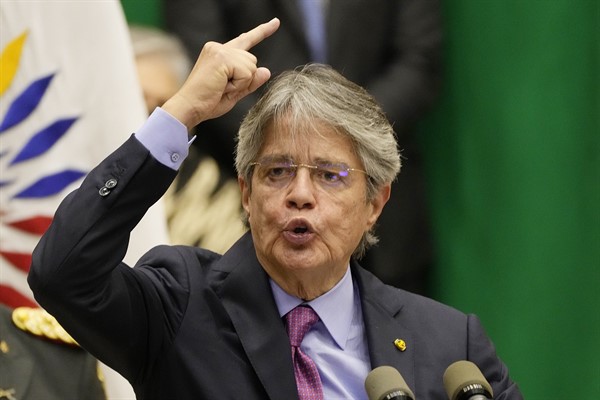There may never be a good time to cut social spending, especially in a Latin American country so wracked by inequality that an unpopular austerity package resulted in lethal riots even before the onset of the coronavirus pandemic. That is the lesson Guillermo Lasso, Ecuador’s conservative new president, appears to be learning the hard way six months into his term in office.
After his surprise win in April’s presidential runoff election, Lasso, a former banker and one of his nation’s richest citizens, moved swiftly to establish his authority upon taking office the following month. He rapidly accelerated Ecuador’s vaccination drive and pushed for a market-friendly omnibus law that sought to create jobs by relaxing labor protections, overhaul the tax code and facilitate foreign investment. In September, he also raised his profile, and Ecuador’s, with an impassioned defense of internationalism and Western liberal democracy at the United Nations General Assembly in New York.
Initially, all seemed to be going well for Lasso. He oversaw the vaccination of 9 million of Ecuador’s nearly 18 million citizens in his first 100 days in office, taking the country from being an immunization laggard to one of the most vaccinated in Latin America. He also successfully renegotiated a $6 billion rescue package with the International Monetary Fund to make the deal’s required belt-tightening more flexible and socially conscious. His popularity soared, topping 70 percent as recently as September, reflecting the relief of Ecuadorians who had been worn out by nearly two decades of populist politics, first right-wing and then left-wing, followed by the turbulent presidency of Lasso’s predecessor, Lenin Moreno. It seemed they would give Lasso the benefit of the doubt regarding the “neoliberal” reforms he was attempting to introduce.

